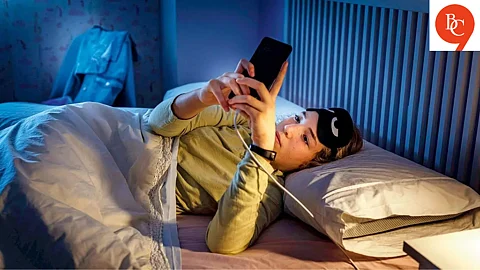

For Gen Z — a generation raised on digital devices, late-night scrolling, and a culture that glorifies hustle over rest — sleep deprivation has quietly become a serious health issue. And it’s not just causing under-eye circles or daytime fatigue.
Studies now show a clear link between poor sleep and weight gain, especially among young adults.
Why Gen Z Is Sleeping Less
From binge-watching to doomscrolling, sleep is often sacrificed for screen time. According to a 2024 survey by the Sleep Foundation, over 60% of Gen Z report inconsistent or inadequate sleep due to stress, social media, or erratic schedules.
Add academic pressure, side hustles, and anxiety to the mix, and it’s a perfect storm for sleep deprivation.
This digital-age phenomenon — called “revenge bedtime procrastination” — is when people delay sleep for personal time, ironically costing them energy and health.
How Poor Sleep Affects Weight
Sleep and metabolism are closely connected. Here’s how a lack of shut-eye can silently tip the scales:
Hormonal Imbalance
When you don’t sleep enough, your body increases ghrelin (the hunger hormone) and decreases leptin (the hormone that signals fullness). This leads to more cravings, late-night snacking, and overeating — especially junk food.
Slower Metabolism
Sleep helps regulate insulin and glucose levels. Without it, your body becomes less efficient at processing sugar and fat, which increases the risk of weight gain and even diabetes.
More Stress, Less Movement
Lack of sleep raises cortisol (the stress hormone), which promotes fat storage — especially around the belly. Plus, when you’re tired, you’re less likely to work out or even take the stairs.
Why This Matters for Gen Z
Weight gain isn’t just about aesthetics — it’s tied to mental health, energy levels, self-esteem, and long-term disease risk. Gen Z already faces high rates of anxiety, depression, and burnout. Adding metabolic issues to the mix only worsens the cycle.
5 Simple Sleep Habits to Break the Cycle
If you're struggling with both sleep and weight fluctuations, here are small but impactful habits to adopt:
Set a consistent sleep schedule — even on weekends.
Limit screen time at least 30 minutes before bed.
Avoid caffeine and heavy meals after 7 p.m.
Create a wind-down routine with music, journaling, or light reading.
Keep your bedroom cool, dark, and distraction-free.
Sleep isn’t a luxury. For Gen Z, it’s a non-negotiable foundation for health — just as important as food or exercise. If you’re struggling with weight gain or fatigue, maybe it’s not your diet that needs fixing. Maybe it’s your bedtime.
Because in a world that’s always “on,” real power lies in rest.
